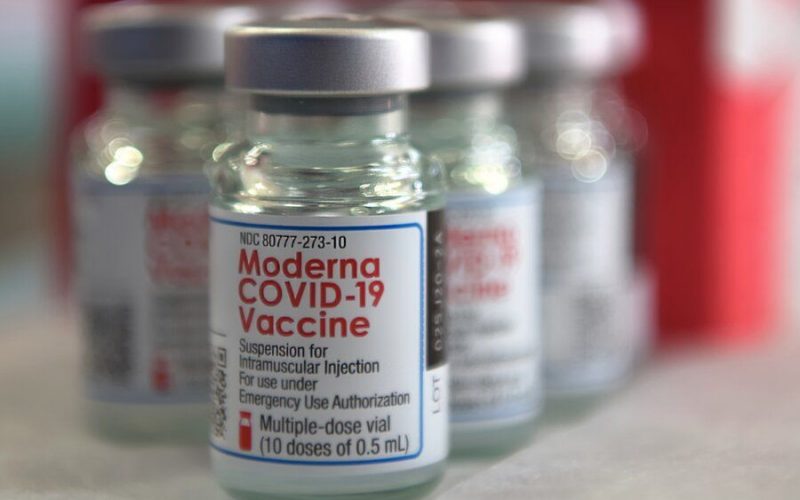According to a recent new paper from Moderna scientists, the technology employed in the COVID-19 vaccine poses risks of toxicity.
“A major challenge now is how to efficiently de-risk potential toxicities associated with mRNA technology,” the scientists wrote in the paper, which was published by Nature Reviews Drug Discovery.
The COVID-19 vaccines from Moderna and Pfizer utilize a technology called modified messenger ribonucleic acid (mRNA). This mRNA is transported by tiny particles called lipid nanoparticles (LNPs).
The toxicity risks include “lipid nanoparticle structural components, production methods, route of administration and proteins produced from complexed mRNAs,” the authors of the paper wrote.
The authors of the paper include Moderna employees Eric Jacquinet and Dimitrios Bitounis, along with Maximillian Rogers, who was working at Moderna during the paper’s development.
Unfortunately, Moderna did not respond to a request for comment.
The mRNA vaccines can cause various side effects, such as heart inflammation and severe allergic reactions. These reactions might arise from hypersensitivity reactions, which could be triggered by “any LNP-mRNA component” but are most likely due to PEGylated lipid nanoparticles, which is “the most potentially reactogenic component,” according to the scientists.
Polyethylene glycol, or PEG, is an ingredient found in the Pfizer and Moderna COVID-19 vaccines, and it’s known to trigger allergic reactions.
There’s a split among external scientists regarding the cause of heart inflammation, with Pfizer suggesting that lipid nanoparticles (LNPs) may be responsible for the problem.
The new paper relied on previous publications and existing data. The authors didn’t carry out any new experiments.
Among the cited papers were studies that discovered mRNA and the spike protein from Moderna’s vaccine lingering in different parts of the human body for weeks or even months post-vaccination.
This finding contradicts earlier assertions by health officials during the vaccine rollout, who stated that these materials would be eliminated from the body within a few days.
The scientists said that Moderna’s COVID-19 vaccine is “safe and effective” and hailed the development of an updated vaccine as “[demonstrating] the rapid timeline for modifications with mRNA technology in the clinic.” Due to the “transient nature of mRNA,” however, “repeat administration may be necessary,” they said.
The scientists later emphasized that reducing the risks of toxicity with mRNA-based vaccines and medications is necessary but “complicated.” This can be achieved through a comprehensive strategy involving advanced laboratory testing and adjustments to preclinical animal trials to better account for “differences in human and animal physiology.”
Moderna and other companies are currently conducting tests on several new mRNA products, such as influenza vaccines and therapies for cancer.
“Thanks to the mRNA platform we built, we have an exciting pipeline, with up to 15 launches in the next five years,” Stephane Bancel, Moderna’s CEO, told investors in the company’s most recent earnings call.
The lead author of the paper, Mansoor Amiji from Northeastern University’s Departments of Pharmaceutical Sciences and Chemical Engineering, referred a comment request to Mr. Bitounis, who did not provide any responses.
Share your thoughts by scrolling down to leave a comment.

